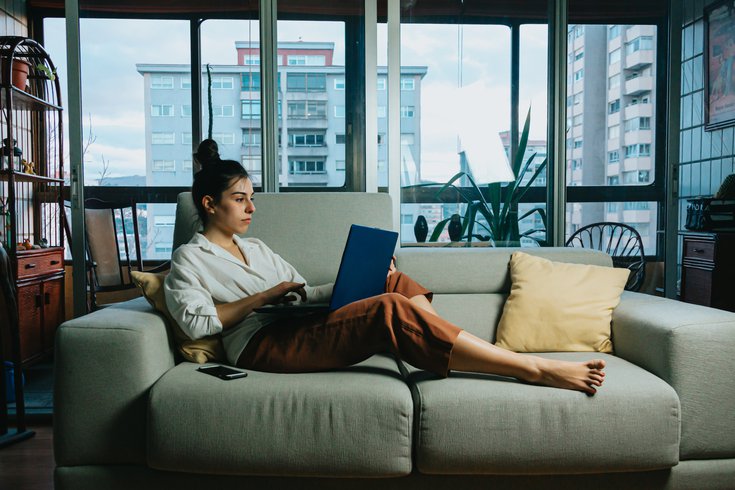
October 20, 2021
 Ave Calvar/Unsplash
Ave Calvar/Unsplash
Research suggests Americans are spending about four more hours a day sitting than they were before the COVID-19 pandemic.
As more Americans return to the office after working from home during the COVID-19 pandemic, health experts emphasize the importance of scheduling time for physical activity during the day.
Everyone's pandemic experience has been different. Some people easily may have found time to exercise while working from home. Others may have felt more chained to their computers than they did in the office.
Regardless, the COVID-19 pandemic has led to more couch and screen time for many Americans. Some research has found Americans are spending about four more hours a day sitting than they were before the pandemic.
The transition back to the office may be the perfect time for people to hit the refresh button and find new ways to incorporate physical activity into their daily schedules.
The impact of sitting on our physical health has been well-documented. Studies have shown that a sedentary lifestyle is associated with an increased risk of being overweight and developing chronic conditions such as cancer, type 2 diabetes and heart disease. It's also linked to early death.
Prolonged sitting can cause the hip flexor muscles to shorten, which can lead to hip joint problems. Poor posture can affect spine health, leading to disc degeneration.
One analysis of 13 studies found that people who sat for more than eight hours a day with no physical activity had a similar risk of dying as someone who is obese or smokes.
The mental health affects of too much sitting aren't as well known. But they're significant.
Jacob Meyer, director of the Wellbeing and Exercise lab at Iowa State University, is among researchers who have been studying people's exercise patterns during the pandemic and the impact on mental health.
In the early days of the pandemic, people who exercised less and spent more time looking at screens were more likely to be lonely, stressed and depressed, researchers found. As stay-at-home restrictions began to loosen across the country, mental health improved – except for those who stayed mostly sedentary.
Meyer's earlier research also has shown that replacing prolonged sedentary time with light physical activity improves mood and lowers body mass index. Getting more sleep – instead of late night screen – time also is associated with less stress, lower BMI and better mood.
"We know consistently that the more people are active, the more that they exercise, the better their mental health is," Meyer told NPR.
Other studies have found strong associations between physical activity and boosts in mood as well as decreased risk for anxiety and depression.
A recent study found that spending more than eight hours a day sitting during the pandemic, even with 150 minutes of moderate to vigorous physical activity during the week, was associated with increased risk for depression, anxiety and chronic stress.
Studies consistently show that daily physical activity is important. People who haven't been exercising during the pandemic should gradually introduce more physical activity so they don't feel overwhelmed, experts say. Even small steps can make a big difference.
With a little ingenuity, there are plenty of ways to get moving – both at home and at the office. Here are some tips from Better Health Channel, NPR, the Mayo Clinic and Harvard Health:
1. At work, take the stairs instead of the elevator.
2. Ask to use a standing desk.
3. Schedule more walking meetings with colleagues and clients.
4. During lunch, go for a walk or squeeze in an exercise class.
5. People who are working from home should take a "virtual commute" by going for a walk around their neighborhoods before and after work.
6. At home, step away from the computer frequently for some stretching and exercises such as squats, sit-ups and lunges.
7. Stand up and walk around when chatting with friends and family on the phone or during virtual meetings that don't require the camera to be turned on.
8. Instead of binge watching shows every night, break up the evening by doing something active, even if it is cleaning the house or puttering around the garden.
9. For people who are short on time, even 5-minute spurts of activity scattered throughout the day can increase their overall physical activity. Set a timer to signal when it's time to get up and move.